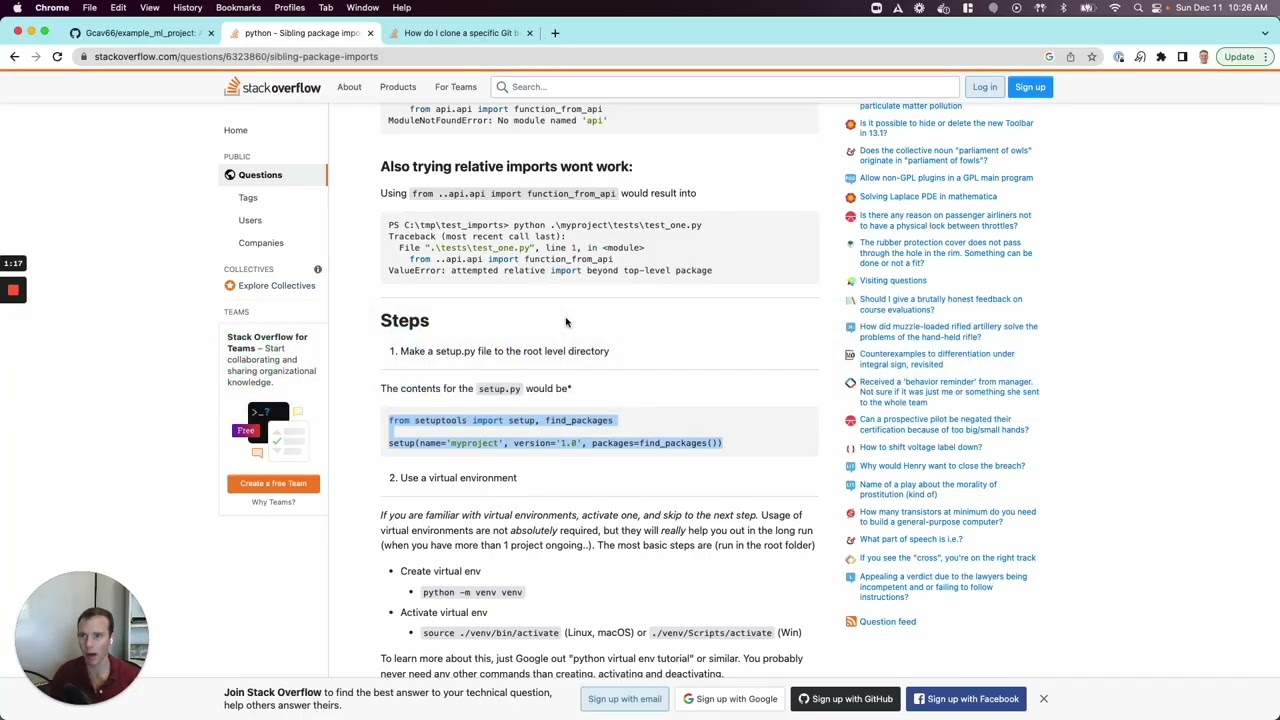How to solve modulenotfounderror no module named ‘unidecode’ in python

If you’re delving into the world of Python programming, you might **encounter various errors** that could hinder your development process. Among the numerous errors that one may face, the **ModuleNotFoundError** is quite common. Specifically, the message “No module named ‘unidecode'” can pop up and leave many developers puzzled. This article aims to provide a long, detailed **guide** on resolving this specific issue, among other related errors, while also covering general troubleshooting practices in Python.
Understanding the `ModuleNotFoundError`
The concept of **modules** in Python is essential for better organization of your code. Modules are simply files containing Python code, which can be functions, classes, or even variables. When Python cannot locate a particular module, you may receive an error message such as ModuleNotFoundError. This indicates that Python was unable to find the **module** you requested, in this case, ‘unidecode’.
The error is often met with confusion, especially for those who are new to Python or programming in general. When you encounter a message stating “No module named ‘unidecode'”, it doesn’t imply that the module doesn’t exist; rather, it suggests that Python can’t locate it in its current environment.
Common Reasons for Encountering the Error
- The module is not installed: This is the most frequent reason for receiving this error message. If you haven’t installed the unidecode module, Python can’t find it.
- Installation in the wrong environment: If you have multiple Python environments (e.g., virtual environments), the module might be installed in one environment but not in the one you’re currently using.
- Typographical errors: Even a small mistake in the module name can lead to this error. It’s crucial to ensure that the spelling is correct.
- Issues with the Python path: If the directory where Python looks for modules doesn’t include the directory of the **unidecode** module, you will also face this error.
How to Solve ModuleNotFoundError: No module named ‘unidecode’
To resolve the issue of ModuleNotFoundError: No module named ‘unidecode’, you’ll want to take a systematic approach. Below are the steps that will guide you through fixing this error effectively.
Step 1: Check Your Python Environment
First and foremost, verify which Python environment you are currently using. You can do this by running the following command in your terminal:
which pythonor for Windows:
where pythonThis will show you the path of the Python interpreter in use. If you are utilizing a specific virtual environment for your project, make sure it is activated:
source path_to_virtual_environment/bin/activate # On Unix or MacOS
path_to_virtual_environmentScriptsactivate # On WindowsStep 2: Install the Unidecode Module
If the module is not installed, you can easily do so using **pip**. Run the following command in your terminal:
pip install unidecodeIf you’re using Python 3 and have both Python 2 and 3 installed, you may want to make sure you’re installing for the correct version:
pip3 install unidecodeAfter successful installation, you should receive a message confirming that the module has been installed.
Step 3: Verify the Installation
To **ensure** that the unidecode module was installed correctly, you can run a simple script to import the module:
python -c "import unidecode"If there are no errors after executing this command, it means that the module is correctly installed and recognized by Python.
Step 4: Troubleshoot Potential Issues
If you continue to encounter issues, consider the following troubleshooting steps:
- Check for Multiple Python Installations: Ensure that the module is installed in the right Python version you are using. You can list all installed packages using:
pip listimport sys
sys.path.append('/path/to/directory')
pip uninstall unidecode
pip install unidecodeGeneral Practices to Avoid Module Not Found Errors
While the steps outlined above are focused on solving the “No module named ‘unidecode'” issue, adopting certain practices can help you prevent such errors in the future. Below are recommended practices to keep in mind.
Create and Manage Virtual Environments
Using virtual environments for your Python projects is highly recommended, especially if you work on multiple projects simultaneously. Virtual environments allow you to maintain separate dependencies for each project, preventing conflicts:
- To create a new virtual environment, simply run:
python -m venv env_namesource env_name/bin/activate # Unix or MacOS
env_nameScriptsactivate # Windows
Regularly Update Your Packages
Another best practice is to **keep your packages up to date**. This goes a long way in ensuring compatibility and access to new features:
pip install --upgrade package_nameDocument Your Setup
Maintaining a clear documentation of your development environment, including all installed packages and their versions, can save you considerable time when reinstalling or troubleshooting Python projects.
Advanced Techniques for Handling Modules
For more seasoned developers looking to enhance their skills, consider the following advanced techniques related to module management in Python:
Using Dependency Management Tools
Tools like **Pipenv** or **Poetry** provide sophisticated dependency management, including automatic resolution of dependencies and version conflicts. These tools streamline package installations, providing a more robust development environment.
Utilizing Try-Except Blocks
Incorporating try-except blocks in your code can help gracefully handle module import errors:
try:
import unidecode
except ModuleNotFoundError:
print("Unidecode module is not installed, please install it using pip.")
This way, your program won’t crash, and you can provide informative messages to the user.
Exploring Alternative Libraries
If you find yourself consistently having issues with a specific module, it might be worth exploring alternate libraries that provide similar functionalities. For text normalization, for instance, you could check out libraries like **text-unidecode** as a potential alternative.





